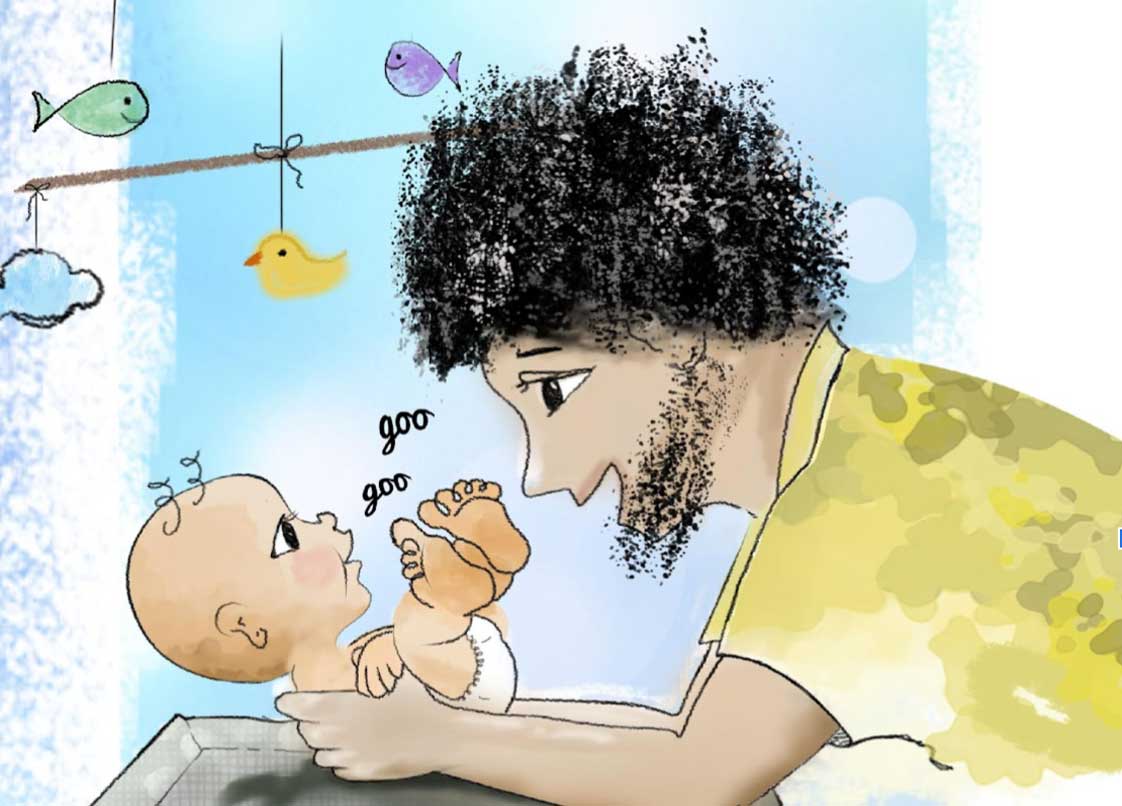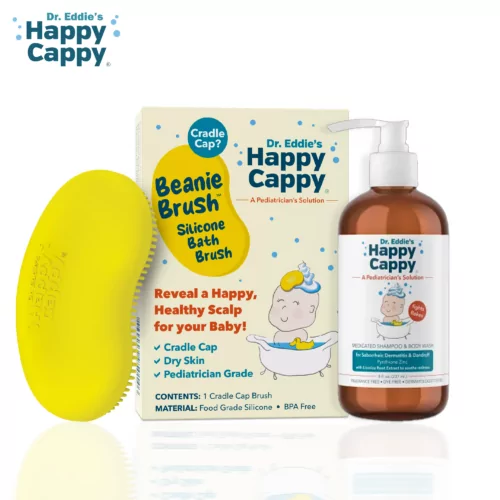
The title of this article points to a pervasive myth that has served to complicate babies’ understanding of language for as long as our species has been speaking. This untrue belief, that babies don’t really understand us, can reduce a parent’s drive to communicate with their infant. They might think, “if my baby doesn’t understand me, what’s the point in talking to them?”
While this might seem sensible from a particular perspective, namely that of an emotionless android, following the logic can lead you to do your baby a disservice. Consider that you can’t learn to do something without practice. Chess grand champions don’t reach the pinnacle of their career by avoiding the game, and synchronized swimmers would likely drown in their first formation if they didn’t first learn to swim.
In truth, asking when your baby will understand you misses an essential truth of language development — talking to your baby before they can understand you helps them eventually understand you! Your infant may not get what you’re saying, but they’re listening — intently! They’re trying to learn, and they need you to teach them. And they can understand at least some of what you’re communicating much early than you might think.
Babies Brains Are Primed for Language
It turns out that human brains are wired to acquire language quickly and efficiently. Research at Northeastern University found that babies’ brains begin working out the sounds, patterns, and rules of language from the moment they’re born, likely sooner!
In the womb, they hear everything you say to and around them, so talk to them intentionally. Let them learn the sound of your voice. Not only is the sound and vibration of your voice soothing, but it also gives them subject matter to begin their understanding.
You should never underestimate what your child hears and learns. Using exaggerated words soothes and relaxes them. You may feel a bit silly using this type of baby talk, but your child will respond to it favorably.
Don’t interrupt or look away when your baby starts saying ‘ba, ba, da, da.’ Your child needs to know that you care about listening to them (even if you don’t understand.) Respond just like you would if you understood their words — understanding isn’t always required for communication.
It’s simply never too early to start building your child’s receptive (words he understands) and expressive oral language (words he can say). Your baby is listening and learning the words for different people, places, and things very early on, so make sure you are pointing out and talking about all of the wonderful things in their world. Before you know it, your baby will ask for his favorite ‘blankie’ or ‘teddy’! And then your heart will melt straight into the floor.
So When Can a Baby Talk?
The unsatisfying answer to this question is, “when they do.” It’s different for every child and depends on a host of factors. Babies generally begin to communicate as early as three months. Even at this young age, they may make cooing sounds and generate cries for different needs.
By six months, many infants will be gurgling and babbling as they begin to experiment with different sounds. You may also find them responding to changes in the tone of your voice.
The end of their first year is when things start to get interesting. You might discover your baby imitating speech sounds and rattling off their first words, like “mama” and “dada.” They may begin to understand simple instructions and recognize words for everyday objects like “ball” or “sock.”
Their spoken vocabulary begins to develop around 15 months and the may say 3 to 6 words. By 18 months they could have around 10 to 20 words. A word could be “boon” for balloon, or ‘Key” if the dog’s name is Franky. They’ll also recognize the names of familiar objects, body parts, and people. By 18 months children can understand 2 step commands without pointing to the object (if they are in a good mood). For example, “grab me the shoes on the sofa please.”
Their language acquisition kicks into overdrive when your child reaches two years of age. They may begin using simple phrases like, “big car!” and ask rudimentary questions like, “eat apple?” Their vocabulary may top 50 words or more! Not only will they be able to understand you, but you’ll also begin to understand them.
Remember, it’s a myth that your baby doesn’t understand you. They understand exactly what they need to at each stage of their development. Your job is to supply them with the other side of the conversation so that they can expand their understanding. In no time, they’ll be yammering at you incessantly, and you might wish they never learned to speak in the first place!






